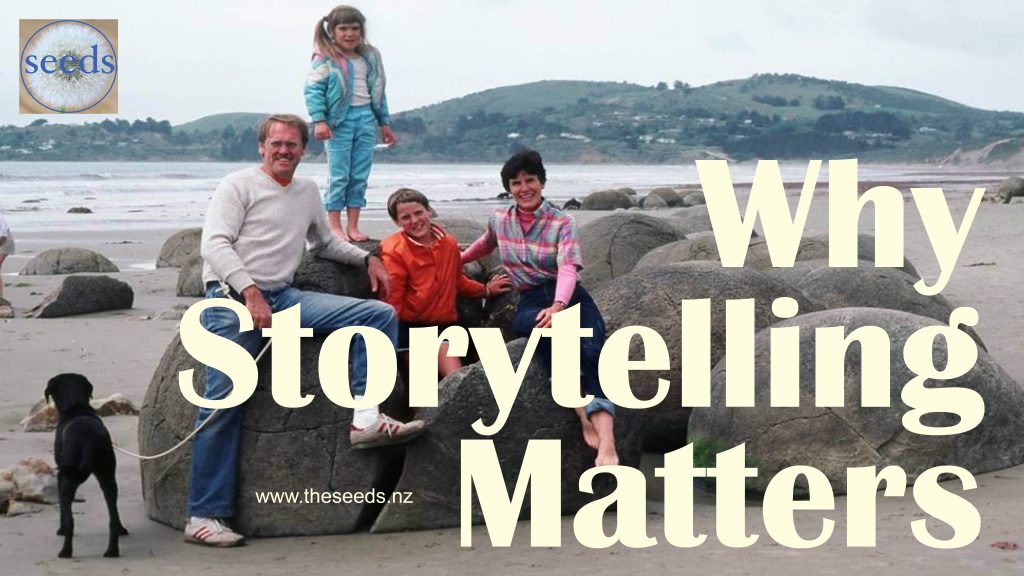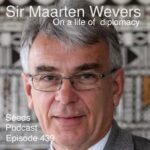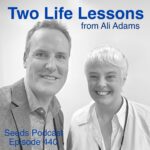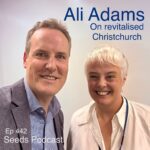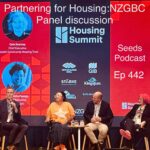This is the text of a presentation for the Aotearoa SDG Summit held on 2 September 2021. I had 10 minutes and 10 slides to share about seeds podcast so I took a different approach of sharing some of my own story and trying to explain why stories really do matter.
The video is at the top then the slides and the full text are also included below that. Info on the summit is here.
If you’d like to share the youtube video this is the link: https://www.youtube.com/watch?v=CAhvOxM1dAM&t=4s
Slide 1
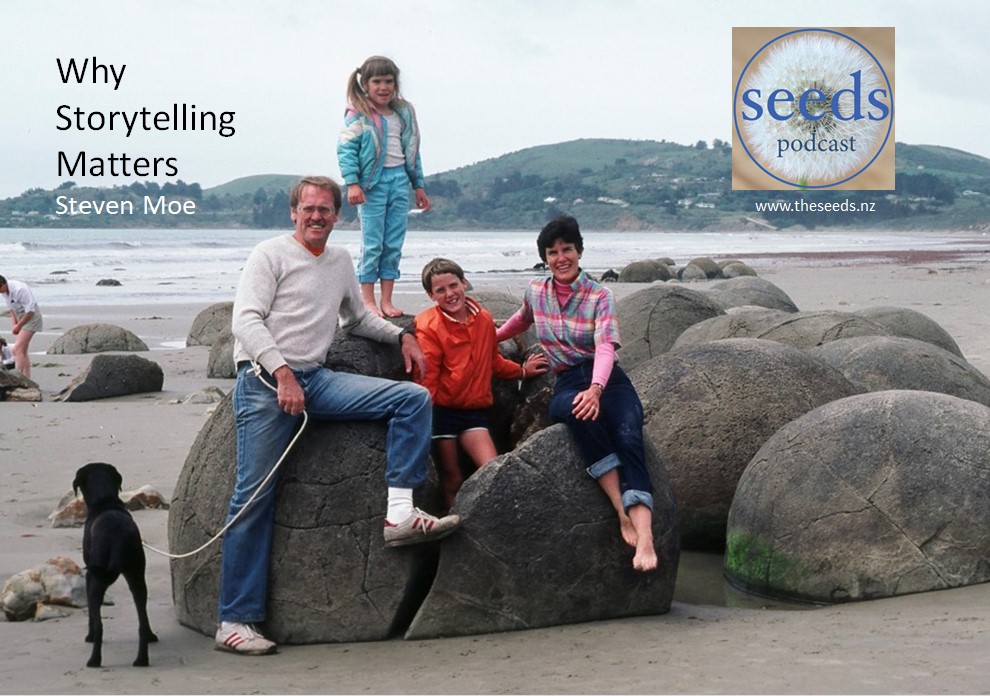
Kia ora Koutou, Ko Steven Moe toku ingoa.
Stories can be like seeds planted that grow into new ideas.
Think about this – two hundred years ago how many of our ancestors could read and write? Instead, they told stories – Why? Because stories connect deeper with our souls.
If I say that SDG 6 is about clean water and sanitation that has far less impact than saying: “This is 6 year old Maria, she draws water from a well every day which is infected with diseases for her family to drink”. Stories matter.
This picture tells a story. It’s of a young boy named Steven Moe – I had just moved to New Zealand in 1984. My story is of someone with an accent that at times places him outside of the culture he has grown up in, but whose heart is filled with a Turangawaewe of Aotearoa.
We were living in rural Papakaio, just North of Oamaru. On the left of our house was a water race and then a graveyard, on the right was a paddock of frightened sheep scared of the Magpies swooping above them.
There are other stories in this photo – my Father Norman, my Mother Marion, my sister Natalie.
And can you see another story? It’s the more ancient one. A story of rocks strewn like a geological lolly scramble on the beach at Moeraki.
This picture shows us the strands of stories that wove together to form a tapestry of my family’s life.
We can only follow one of these stories on.
Slide 2

The boy we saw in the last photo is now 23 – I am with my Mother and had just graduated from Canterbury University.
My Mother had taught me something important. There is no person who is not interesting – if you think that someone is not interesting, then that is your fault not theirs – every single person has a story.
Stepping out on my own for me involved working as a lawyer for Russell McVeagh, a law firm in Wellington then moving to London, Tokyo and Sydney for more than a decade working for a firm with 4,000 lawyers in 55 offices.
But there was a theme. That theme was helping already wealthy people earn a bit more.
Slide 3

We all see the World through a lens which is shaped by our experiences.
I started to realise that maybe I had on the wrong set of glasses.
We used to talk about it, working late at night, heating up another microwave dinner, looking out at the lights strewn like stars below the heights of the high rise office. We called them golden handcuffs – sure, they are handcuffs… but look, they are gold. It’s hard to break free.
But my story shows that it is possible. I realised that maybe I could take all my experiences to date and reinterpret them, reimagine them for a new context, one which was about purpose and being a lawyer – yes the words “lawyer” and “purpose” don’t have to be mutually exclusive terms.
It was time to write my story.
It was time to come home.
Slide 4

When I got back to New Zealand in 2016 I started meeting amazing people here in Otautahi, Christchurch. People who had stories.
I shifted gears and became an impact driven lawyer as a catalyst for positive change. This involves supporting purpose driven organisations that range from NFPs to Social Enterprises to start-ups and for profit business. I like to call it the Impact Sector.
This is a photo of an Impact Lunch where up to 40 people gather to share food and tell each other stories about their journeys.
Why? Because our stories matter.
Slide 5

So let’s recap where we are up to.
- Our stories matter.
- There is no person who is uninteresting.
- Each one of us can be a catalyst for change.
So I wondered if I could help get more good stories out there. I met amazing people no one knew about. The media is obsessed with short word limits and negative spin.
It was Robert Louis Stevenson who said: “Don’t judge each day by the harvest you reap, but by the seeds that you plant.” So what would this mean for me – what could I do? I started a podcast.
Slide 6
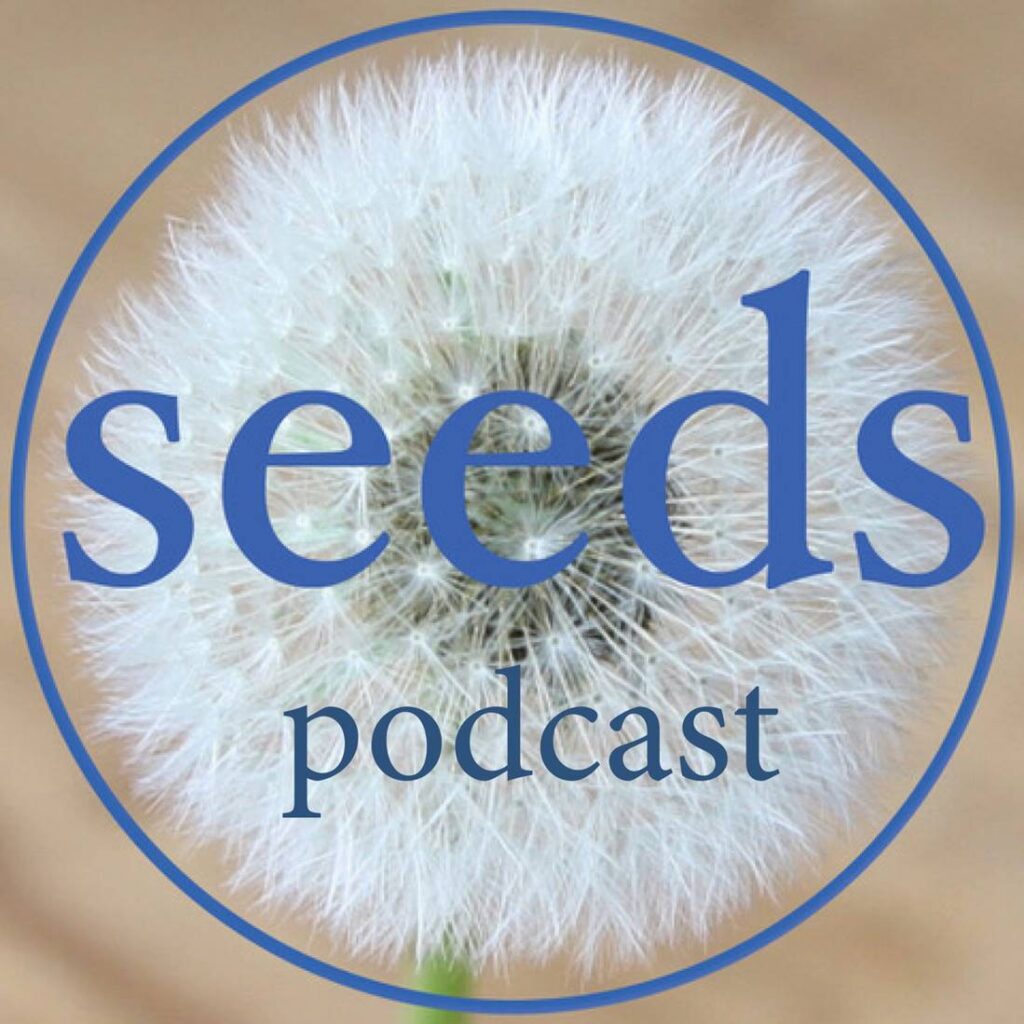
Seeds podcast was birthed at the time of the Social Enterprise World Forum in September 2017 and since then I’ve put out one story a week, now with 267 episodes in total.
The idea is simple – seeds look like they are dead – if you give them the right conditions of soil, water and light then they will grow.
The stories on the podcast are like seeds because when you hear them, something new just might grow in your own thinking.
If you look up “seeds” in podcasting apps like Spotify or Apple Podcasts then this is the image you will find. It is intentional that the image is of a dandelion – how often do we think of it as a weed, but what is it that we make our wishes on when we blow and scatter their seeds. Maybe it is all about perception.
Where some see a weed – others see a wish. What do you see?
Slide 7
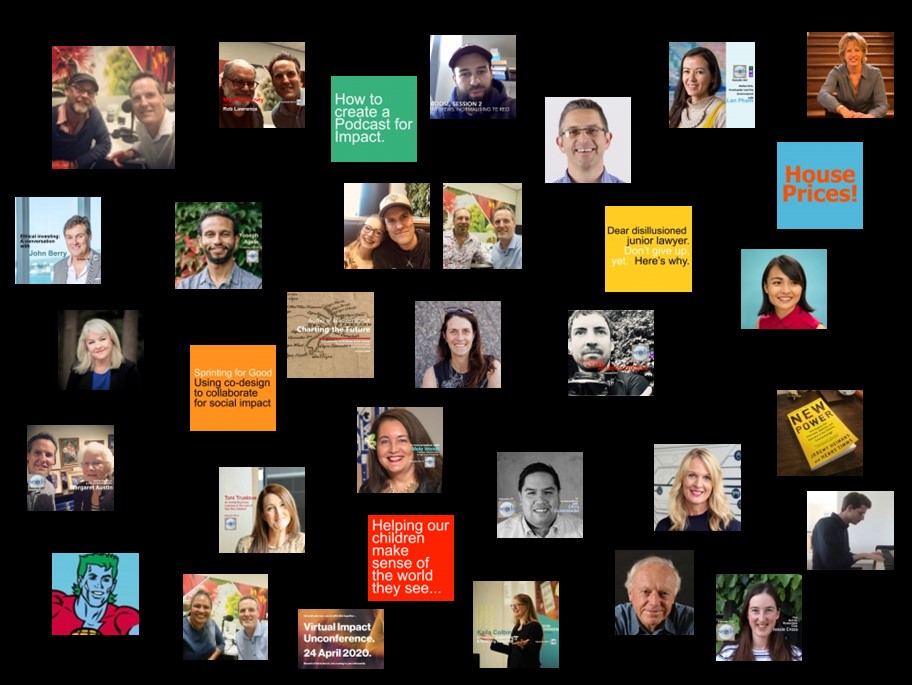
Having interviewed hundreds of people this slide would be full of too many faces to see them if I put them all on here. This is a selection as the range is enormous, from a child on what it is like to be 6, to a 92 year old nun who worked in palliative care for 70 years, to discussion on the SDGs. From tech entrepreneurs and investors, to a co-founder of the Edmund Hillary Fellowship, the founder of Bead & Proceed, Erica Austin who is helping on this conference, Tongan and Samoan immigrants, someone who was shot in the terror attacks, Matt Morris who shared about organising this conference, people who care about the ocean, travelling to space, who love mathematics, spirituality, Te Ao Maori. Each of them have a story to share.
We also talk about the failures – or as Michael Mayell put it when he spoke about his two ‘failures’ before Cookie Time succeeded, they are the compost for the success that is to come.
By hearing stories we feel brave enough to try something on our own.
Slide 8
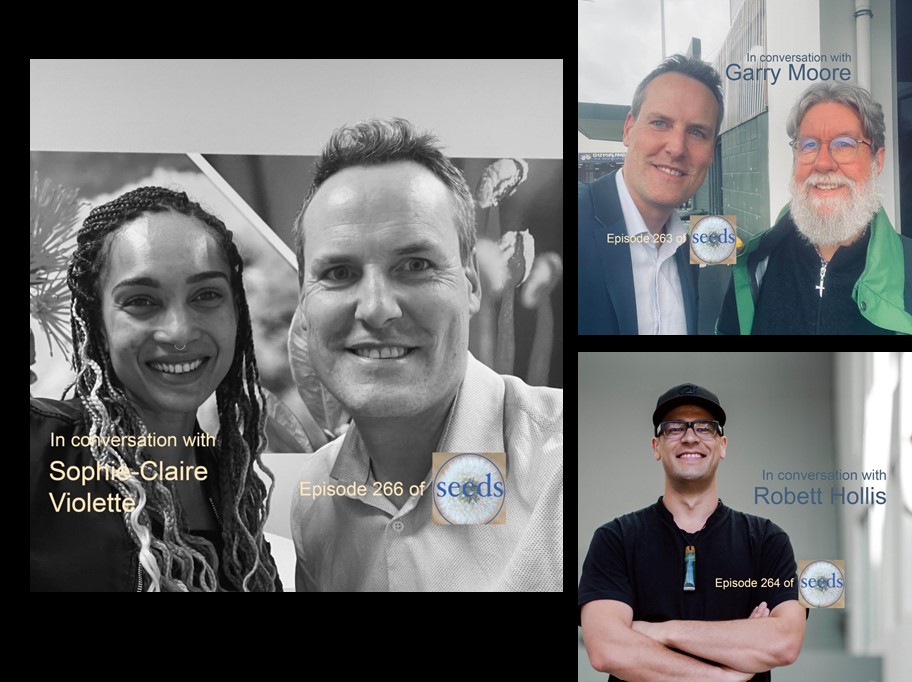
Let’s focus in on three of these stories to show the diversity of them.
On the top right you can see Garry Moore, the former mayor of Christchurch. He shared a personal story of how he felt unworthy of the generosity of a couple when he was younger. They took him aside and said they had enough now so they could share with him – but would he do the same one day for others.
On the bottom right you can see Robett Hollis an amazing entrepreneur who was a professional snowboarder grew up here in Aranui. We talked about the influence on his perspective of Te Ao Maori and ways of being and the wisdom of Kaitiakitanga or Stewardship in business.
On the left is an unreleased episode with Sophie-Claire Violette and we had an amazing discussion about being an anthropologist who comes from Mauritius and we talked about the power of words, language and community
I’ve stopped calling these episodes “interviews” as they are really conversations. Through them we dive deeply into the past and what has formed people. My opening question is not, “what do you do”. Instead it is “what was life like for you when you were 5 years old” and we go from there.
So each one is telling a life story.
Slide 9
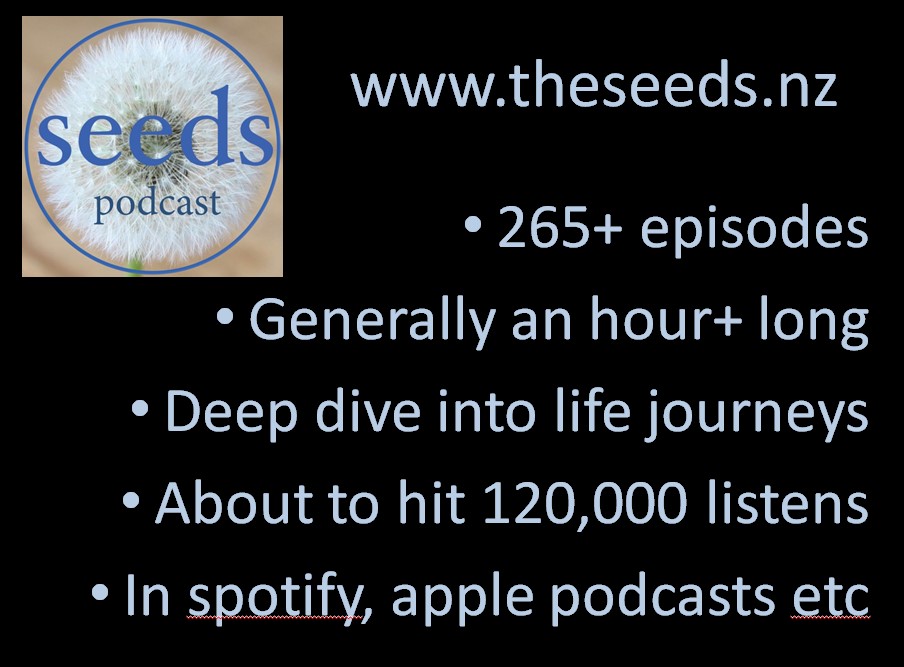
Some current stats on the project are set out here – you can find the show in podcasting apps or at the website there at the top www.theseeds.nz where there are a bunch of videos, articles and more.
If you email me and tell me the topic you are interested in I commit to writing back with my top curated recommendations for you. steven@theseeds.nz
These are not short 5 minute or 20 minute episodes as I am committed to long form podcasting.
Showing the power of technology, as an example there were 318 listens yesterday – amazing as I cannot talk to that many people in a day!
This is a project that is word of mouth as I have no marketing budget so if you like it, please help it by telling others or sharing this presentation when it is released.
Slide 10
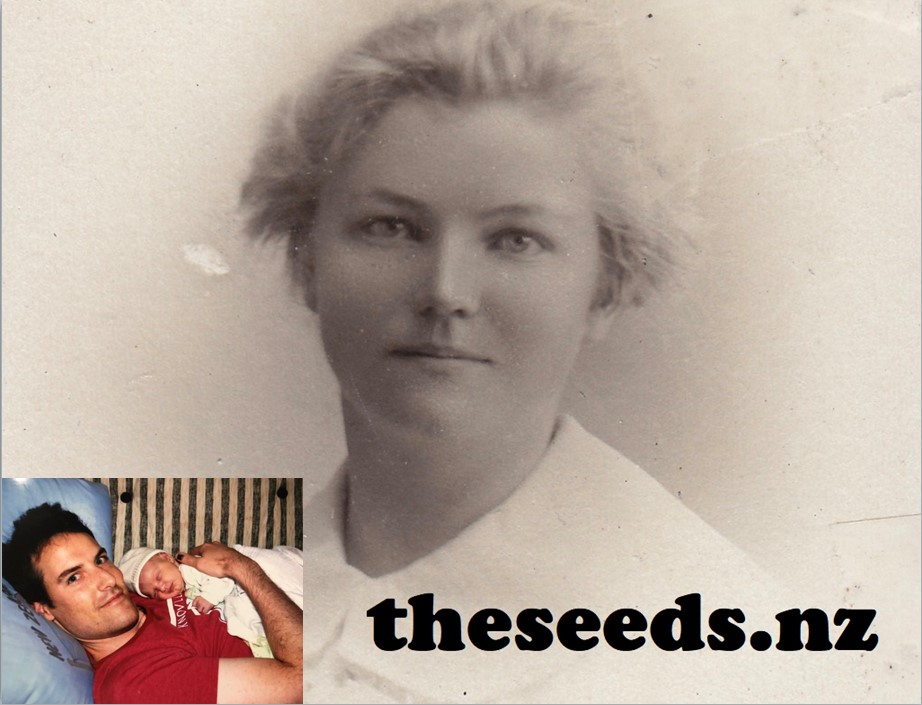
I started with a slide of family and I come back to another – this is Sigrid Odegaard my great grandmother who died 15 years before I was born. I think about her life and her story and it reminds me of how quickly time goes by.
And the photo on the left is me and my daughter Shanna when she a new born.
These photos remind me of the generations that come and go. Each of you is alive here and in this moment. How will you make a difference. How will you catalyse change and impact. How will you amplify the stories of others that you know.
Stories matter. They matter because we like stories. We identify with stories. We learn from stories. We should tell as many as we can, as often as possible.
Let’s go out knowing that our stories of people matter. Let’s tell them authentically. Let’s listen. Let’s stay curious.
Thank you for hearing my Korero about this project of Seeds Podcast and Why Stories Matter.

